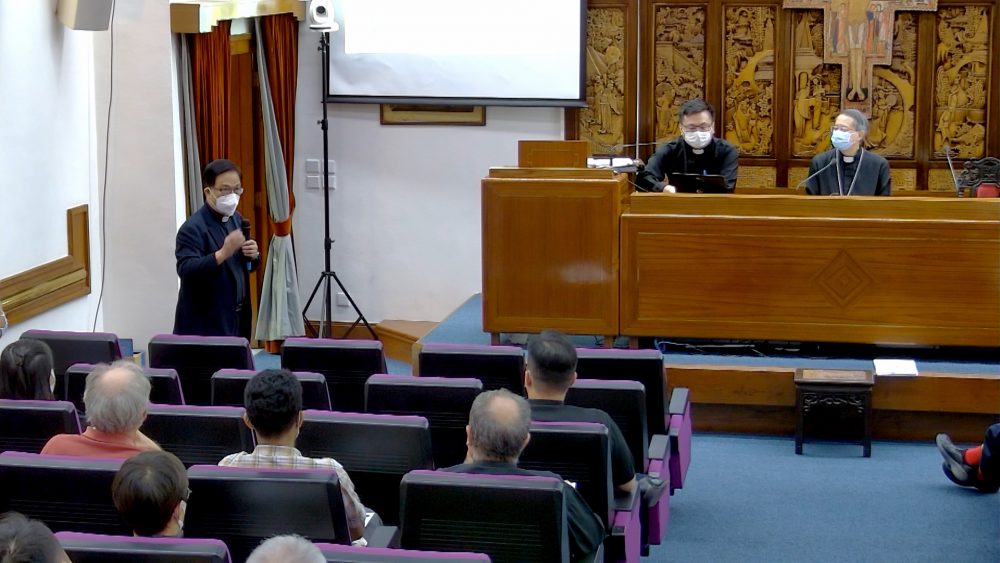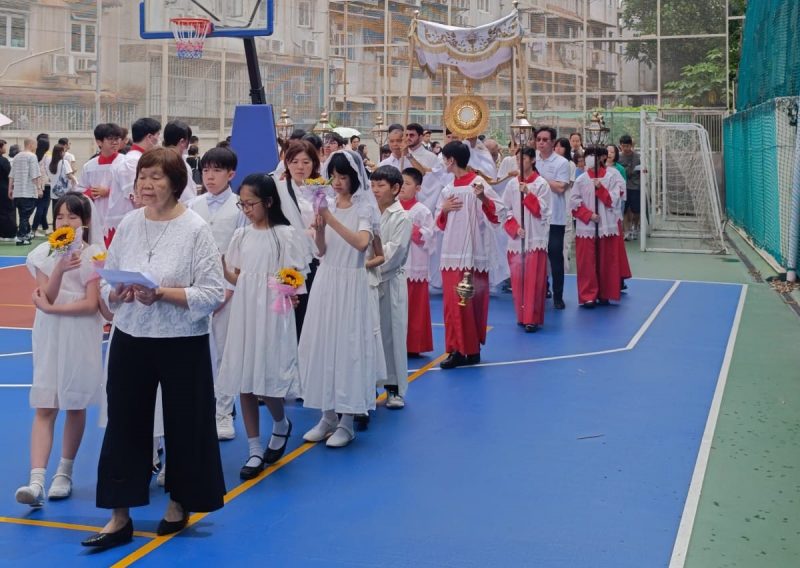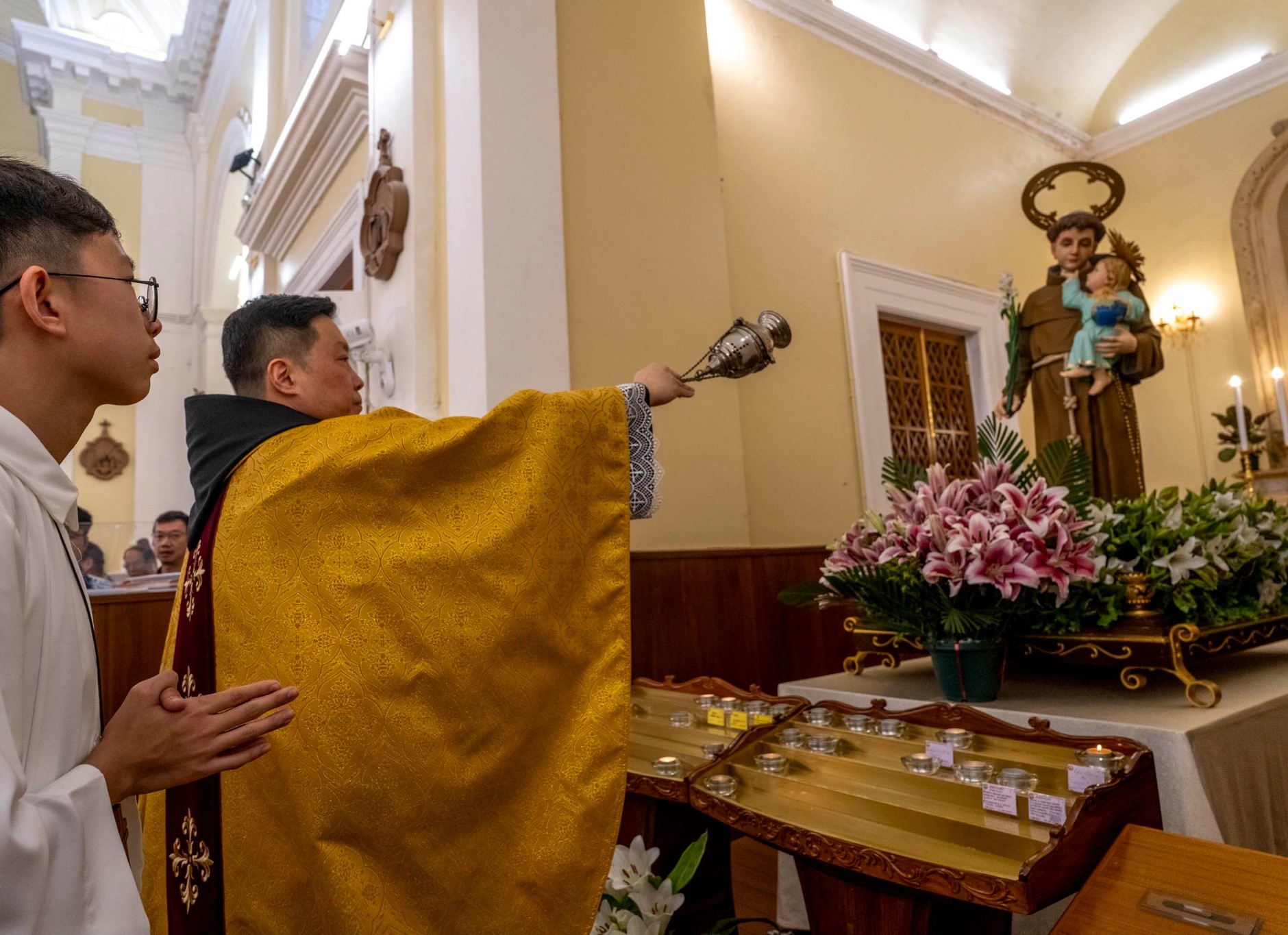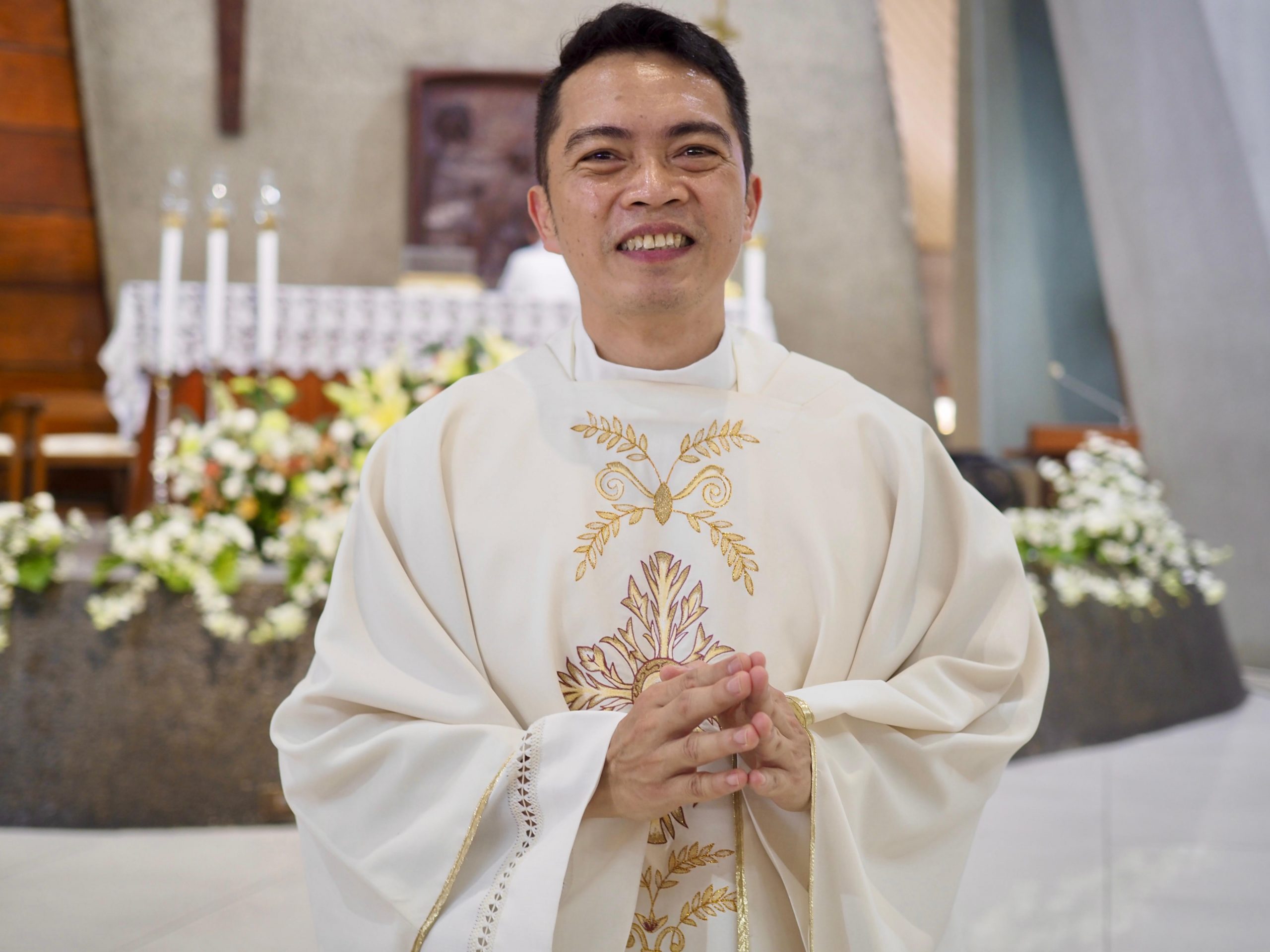Marco Carvalho
A diocesan report chronicling input from the faithful in the Diocese of Macau, following Pope Francis’ call for global participation in the 2021-2023 synodal process, was recently presented by the diocese’s current chancellor, Father Cyril Law.
Of the 10 topics which were initially up for discussion, “Listening” was the thematic nuclei that was chosen by most of groups that were involved in the diocesan phase of the proceedings. The local stage of the Synod on Synodality has already folded, but the consultation process points to lasting dialogue. In the report recently brought forward, the Diocese of Macau recognizes that “listening is the fundamental step to improve the idea that the Church is disconnected from the modern world” and stresses the idea that “taking into account the voices of the public in general” is a key expedient in removing obstacles that discourage and alienate the younger generations.
Even though the universal phase of the Synod is still taking shape, Argentinian missionary Father Fernando Azpiroz argues that dialogue has already emerged as a key reference point around the future of Catholicism and the very nature of the Catholic Church. Following the disclosure of the diocesan report, O Clarim challenged the current superior of the Society of Jesus in Macau to carry out an analysis of the conclusions of the auscultation process that was conducted over the last 12 months. First and foremost, the Argentinian missionary highlights the way in which dialogue insinuates itself throughout the entire document.
The synodal process, Father Azpiroz claims, was from the very beginning a breath of fresh air. “I would say that there is, I feel, some fresh air in the whole process, on how the people responded or wanted to respond. We see a variety of different voices, and some of these voices always kept a low profile. They are not used to being a part of the daily life of the diocese. For the first time ever, we are able to come to terms with their concerns and their desires. More desires than concerns, in my opinion,” the Jesuit priest asserts.
“I would say that dialogue is the key word, probably. And there are two kinds of dialogue: the dialogue inside the Church, especially between lay people and the clergy or people that are close to the diocese or exercise responsibilities within the diocese. This dialogue includes priests and religious sisters, but also those that are responsible to the local Catholic institutions. And then, there is the dialogue between the Church and society, and by society, I mean other Christian communities, other religious communities and non-Christians alike. These two types of dialogue are obviously related. If you have dialogue inside the Church, you will probably start to open yourself, and you will feel more comfortable to start a dialogue with the rest of society,” Father Azpiroz believes.
Within the scope of internal dialogue and the heterogeneous fabric of the local Church, the Diocese of Macau itself recognizes that there is room for improvement and that dialogue between the different communities – Chinese, Filipino, Portuguese, Macanese, Vietnamese and Indonesian, to name the most significant – “can be developed in a more inclusive way.” Dialogue and collaboration between the different Catholic communities, Father Azpiroz agrees, must be strengthened so that a multifaceted Church can emerge and develop. “I believe that these communities should be much more connected with the mainstream of the diocese. There is a lot of room for improvement to make the Church in Macau, as the Pope likes to say, a multifaceted Church. A Church with a single voice but different faces. In Macau, you can see the Church through the eyes of a migrant, through the eyes of a Portuguese Catholic, from a Macanese perspective or even through the eyes of a Mainland Catholic. The diocese, I believe, has the capacity to become one,” the current superior of the Society of Jesus in Macau claims.
“From time to time, we have ceremonies that bring the different communities together, but they should be happening more frequently. We have to be able to conceive and use creativity to develop some structures and allow different voices to emerge,” the Argentinian missionary adds.
The role of the local Catholic schools in the education and spiritual growth of the younger generations also deserves the local flock’s attention, with the report mentioning the need to review the criteria and methods put into practice in Catholic schools, so that they can adopt a teaching path that can “increase its focus on the formation of faith.” In Macau, the Society of Jesus supervises two learning establishments – the Matteo Ricci College and Hoi Sing School – and education is one of the Jesuits’ mainstay. But Father Azpiroz contends that in the local schools, faith cannot be seen as the source of the learning process, but rather as a desired target and a fitting end. “I would not say that schools should make faith a thematic issue right from the start. I would say that faith is the final target that mobilizes the whole life of the school. This is something that has to do with learning, but also with a great diversity of relationships: between teachers and students and between teachers themselves. It has to do with the space that is created, so that students can express themselves and their concerns with this space allowing teachers to be closer to the students,” Father Azpiroz emphasizes.
“I believe that the creation of these spaces of dialogue, somehow, set the whole school community walking in a synodal way. I would say that the creation of different types of spaces of dialogue should not necessarily be used to talk about faith, at least not in a direct way,” the Argentinian priest adds.
Among the small and not so small suggestions included in the report of the local stage of the Synod on Synodality are calls for the creation of platforms that can help the voices of minorities, women and the younger generations to be heard. The local Catholics also suggested that children and youth choirs should be created. There was a call for the preparation of children and youth so that they can act as parish tour guides, the promotion of chastity and the theology of the body in schools or just the use of sign language during the online broadcast of the Eucharist, so that the hearing impaired may also have access to the word of God.
Nevertheless, the conclusions that can be found in the report are as important as those that the document omits, Father Azpiroz warns. And one of the main omissions, the Jesuit claims, should be seen as a reason for an in-depth reflection.
“As you know, the diocese proposed 10 thematic nuclei for reflection, and the least discussed topic, according to Father Cyril, was the theme of the celebration. I have no idea why. But this is a very significant aspect. We might get the idea that, in our diocese, this aspect of living the faith is not very strongly emphasized. The celebration and joy of being a Christian is something we should be proud to share with the rest of society. It is a sign of the presence of the Holy Spirit, the presence of God. Perhaps this is something we should reflect on if the absence of this dimension of joy is not something we should be more aware of,” the superior of the Society of Jesus in Macau concludes.


 Follow
Follow


